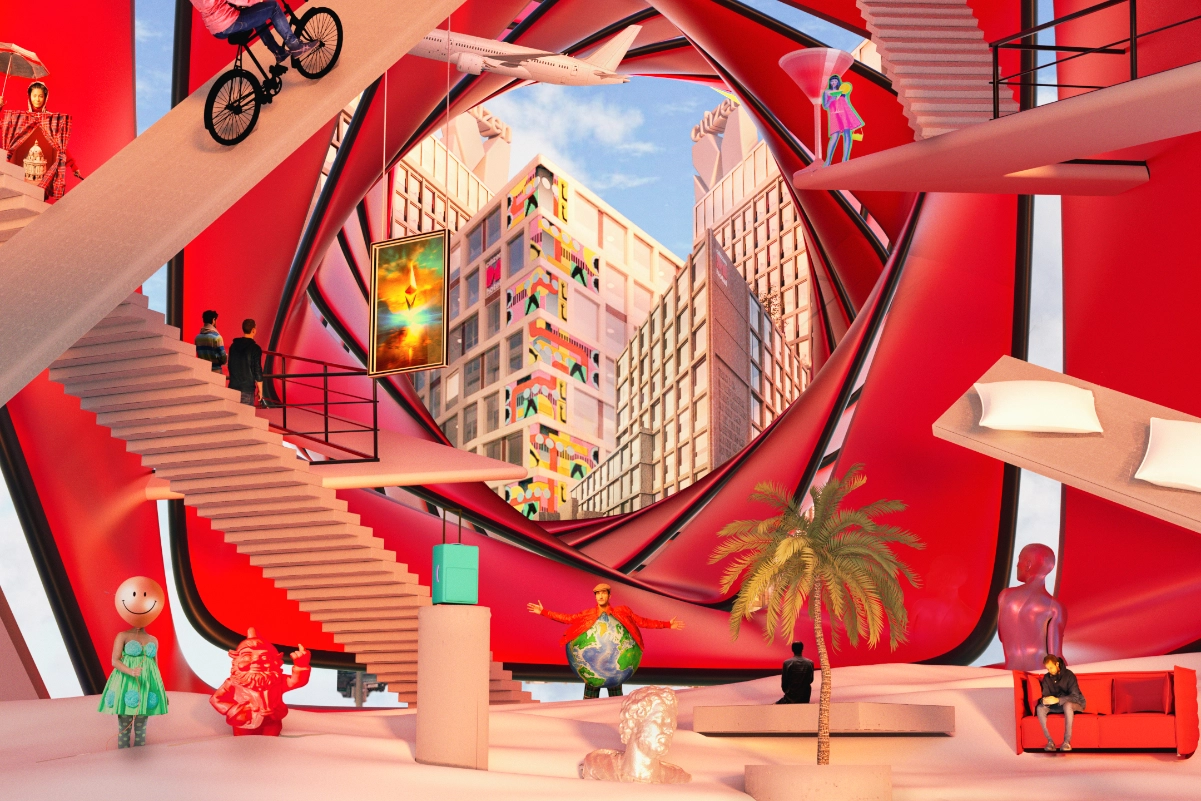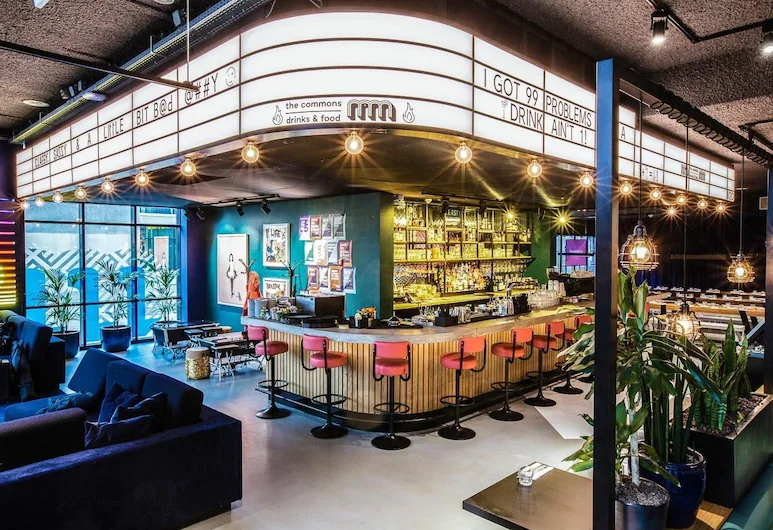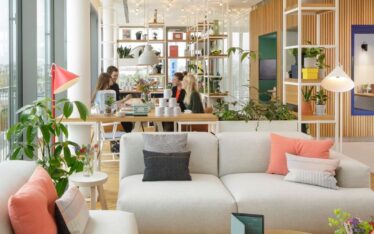Over the past few years, the hotel industry has transformed faster than ever before. Hybrid hospitality models have grown in popularity with forward-thinking companies repurposing their spaces to maximise revenue potential. This is in response to the rapid acceleration of societal and lifestyle trends that have – and will continue to have – a seismic impact on the industry.
In light of these changes, we often discuss what your typical hotel might look like in 5, 10 and even 50 years from now. But in this piece, we have turned that perspective on its head to consider all the things the hotel of the future is not.
Read on for our team’s expert insights…
The hotel of the future is not… just a place to sleep
The hotel of the future is not just about getting ‘heads in beds’ – instead, it’s a place to connect, stay, work and play. From built-in coworking spaces and open lobbies to onsite F&B and cutting-edge fitness facilities, future-facing hotels are fast becoming whole ecosystems existing under one roof.
The hotel of the future will also feature carefully curated events programmes that go beyond the basic and reflect the property’s locality. By leveraging guest knowledge and partnering with local operators, hotels will offer unique, tailored experiences that plug guests into the local area. A great example of a brand already excelling at this is Locke Hotels – both guests and locals can access unique and varied weekly programming across their sites.
The hotel of the future is not… restricted when it comes to revenue streams
In the traditional hotel model, non-room revenue has been overlooked – but in the hotel of the future, space is optimised to increase revenue potential and allow operators to stack different business models on the same square metre of real estate.
We discussed this in our podcast with Hans Meyer – Co-founder and Managing Director of Dutch hybrid hospitality leader Zoku – who described how this approach creates a 168-hour-per-week revenue opportunity for the company. This diversification of revenue streams allows businesses to maximise profits while improving resilience, reducing risk and providing more financial stability than the traditional hotel model.
And it’s not just a shift in the usage of social spaces – the purpose of the hotel room itself is shifting as consumer demands evolve and this poses significant revenue opportunities for hotels.
This approach means rethinking the entire spatial experience of a hotel both in and outside of the rooms themselves. In the hotel of the future, guests will be able to book space by the hour – whether that’s to rest after a long flight, take a few business calls as they work remotely or socialise with friends.
If you’re looking to diversify your hotel’s revenue, head to this blog post to find 15 suggestions.

The hotel of the future is not… just for overnight guests
Historically, the primary function of a hotel has been to provide leisure or business accommodation to overnight guests – but this is changing rapidly.
The hotel of the future is a dynamic neighbourhood hub that exists as much for locals as it does for those staying the night. The property will merge seamlessly with its surrounding area, removing the traditional barriers that have existed between visitors and locals.
Not only does this open up lucrative new markets, but it also appeals to today’s travellers who are seeking locally-rooted experiences and who want to interact with people from the neighbourhood.
Whether they are visiting for the day or for a month, the aim is that guests will feel a sense of belonging with the space feeling like an extension of their home and the brand becoming part of their daily life.
There are a number of hotel companies already executing this strategy successfully. Take, for example, Selina – in a recent interview, co-founder and CEO Rafael Museri said “I’m not building for the international traveller… by building a product designed for domestic you’re ensuring that once the international tourist comes back they are going to come first to your space because they are looking for these local experiences.”
The hotel of the future is not… limited to a physical space
Going beyond the physical to the digital, the hotel of the future will have a thriving, loyal and engaged online community. From a brand and marketing perspective, time and resources will be invested into growing this community with past guests, as well as locals, becoming brand ambassadors.
Beyond that, the hotel of the future will look past the traditional model of hospitality and invest in virtual real estate in the metaverse. Future-facing hotel brands like LEVEN and CitizenM are already making moves in this space.
These virtual spaces will make the brand experience borderless, bringing hotel brands to new audiences and providing accessible spaces where the community can connect with each other and engage in immersive experiences.

The hotel of the future is not… one size fits all
While the hotel of the future is for both guests and locals, it is not made to appeal to everyone. Instead, it is designed to serve specific niche tribes that are put at the centre of everything the company does.
Behind the scenes, constant community research will be underway to develop a better understanding of these niches. Guests and brand ambassadors will be actively engaged in two-way communication and, over time, become co-creators of their experience. This proactive communication allows the brand to better respond to the ever-evolving needs of its target audiences.
This way, the brand’s positioning and marketing can be carefully tailored to these groups and the guest experience itself will feel more personalised.
The hotel of the future is not… shy about where it stands
When it comes to corporate social responsibility and sustainability, consumers are closely examining hotel brands’ values, principles and – most importantly – their actions. People of all ages (but especially millennials and Gen-Z) are aiming their spending power towards brands that align with their values.
That’s why the hotel of the future is not – and cannot be – shy about where it stands. It is purposeful, with a strong set of values and a collective social conscience.
Founder & Managing Director of Koncept Hotels, Martin Stockburger recently predicted that “the next innovative thing in the industry is sustainability… and this isn’t about being an ecohotel, it’s about every single practise of a hotel being focused towards being sustainable.”.
We have already seen the start of this movement, with Zoku recently achieving B-Corp status – and this is only set to continue. The hotel of the future will lead with purpose and offer genuine solutions for people and the planet.
The hotel of the future is not… scared to embrace new technologies
Historically, the hotel industry has not been the quickest off the mark when it comes to adopting new technologies – but that needs to change. Operators who are stuck with out-of-date technology will struggle to keep pace with evolving consumer demands and market changes. That’s why the hotel of the future needs a tech stack that gives operators flexibility and fluidity.
While these technologies are essential from a business perspective, a strong tech stack is also vital to improving the guest experience. People are expecting hyper-personalised experiences from the hospitality brands they engage with – to deliver this, operators need tech that enables them to understand the unique needs and behaviours of their guests through data.
The Student Hotel is a great example of a future-facing hotel operator that has overhauled its tech stack in recent years to support its business vision. This transformation journey has been spearheaded by Mark Liversidge – TSH’s Chief Digital, Technology and Experience Officer – who led the company to think of its real estate in terms of both “space” and “time”. Check out this Skift article for a full breakdown.
We also caught up with Charlie MacGregor, CEO and Founder of The Student Hotel, on our podcast. Listen here.




